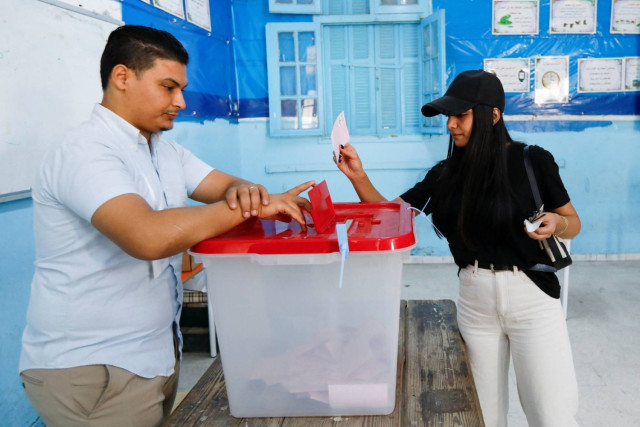Tunisians began voting on Sunday in an election in which President Kais Saied is seeking a second term, with his main rival suddenly jailed last month and the other candidate heading a minor political party.
Tunisia had for years been hailed as the only relative success story of the 2011 "Arab spring" uprisings for introducing a competitive, though flawed, democracy following decades of autocratic rule.
However, rights groups now say Saied, in power since 2019, has undone many of those democratic gains while removing institutional and legal checks on his power.
Saied, 66, has rejected criticism of his actions, saying he is fighting a corrupt elite and traitors, and that he will not be a dictator.
Sunday's election pits Saied against two rivals: his former ally turned critic, Chaab Party leader Zouhair Maghzaoui, and Ayachi Zammel, who had been seen as posing a big threat to Saied until he was jailed last month.
Senior figures from the biggest parties, which largely oppose Saied, have been imprisoned on various charges over the past year and those parties have not publicly backed any of the three candidates on Sunday's ballot. Other opponents have been barred from running.
"The scene is shameful. Journalists and opponents in prison, including one presidential candidate. But I will vote for change," said Wael, a bank employee in Tunis, who gave only his first name.
While elections in the years soon after the 2011 revolution were fiercely contested and drew very high participation rates, public anger at Tunisia's poor economic performance and corruption among the elite led to disillusionment.
Saied, elected in 2019, seized most powers in 2021 when he dissolved the elected parliament and rewrote the constitution, a move the opposition described as a coup.
A referendum on the constitution passed with turnout of only 30%, while a January 2023 runoff for the new, nearly powerless, parliament he created with that constitution had turnout of only 11%.




















